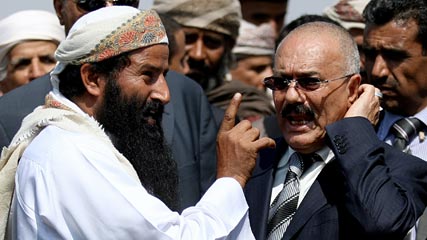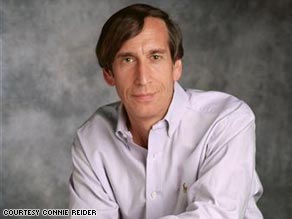
Dictators are supposed to be dumb, or at least crazy. Muammar al-Qaddafi was a ranting lunatic with a goofy fashion sense. Kim Jong Il had a weird hairstyle and a penchant for surreal sloganeering. Those generals in Burma were brutes given to consulting soothsayers on major decisions and shooting people at the drop of a hat.
But these caricatures -- for that is what they are -- actually tend to obscure some unpleasant facts about modern life. Qaddafi reigned for 41 years in a country where fractiousness and rivalry were the order of the day in the era that preceded him. Kim Jong Il died in his bed after ruling North Korea for 17 years -- despite policies that condemned his country to humiliating poverty even while its neighbors rose to new heights of prosperity. And those generals in Burma? They came to power in 1962, and though they've started loosening their grip a bit lately, they still clearly call the shots.
All of these dictators managed to cling to power far longer than they or their people had any right to expect. They were evil, all right. But you can't call them dumb. Measured by their own criteria, they were actually pretty successful.
This is something that we'd be advised to keep in mind if we're going to help the forces of freedom to prevail in the world. And this, indeed, is one of the lessons of Will Dobson's fascinating new book, The Dictator's Learning Curve: Inside the Global Battle for Democracy. Dobson, a former FP editor who now works for Slate, got the idea a few years back when he was invited to a strategy game with some pro-democracy activists who were trying to undermine an authoritarian regime in their home country. When Dobson asked if he could play the role of the dictator, he was met with blank stares. "We're not in the business of teaching people to repress other people," he was told.
The problem, of course, is that you probably won't have much luck beating despots unless you understand what they're up to. In his book, Dobson sets out to rectify that error by exploring five current authoritarian regimes and their strategies for maintaining control. He interviews Chinese Communist Party members and Russian dissidents. He follows Malaysian leader Anwar Ibrahim on a frenetic day of campaigning that dramatizes the challenges of organizing a unified opposition in a country riven by ethnic divides. In Venezuela, he records a memorable encounter with a once high-ranking ally of Hugo Chávez now doing time in jail -- a striking testimony to the capriciousness (or, perhaps, ruthless flexibility) of the regime. And even though much of his reporting from Egypt predates the fall of the Mubarak regime, his sharp analysis of the disposition of forces there is as illuminating as many of the accounts that have come out since the revolution.
The key message that emerges from Dobson's investigations is that today's autocrats are not idiots. They have learned from the mistakes of their predecessors. Putin is not Stalin, and Hu Jintao is not Mao Zedong. In many cases, Dobson writes, modern dictators understand that it's in their interest to observe the appearance of democratic norms even while they're subverting them.
Chávez, for example, loves holding elections, and on election day you can pretty much vote for whom you want. That most Venezuelans end up voting for the president reflects the enormous effort he has put into manipulating the media, the courts, and the bureaucracy every other day of the year. "Election day is not a problem," a former Venezuelan election official tells Dobson. "All the damage -- the use of money, goods, excess power, communications -- happens beforehand."

















 In the 1980s, an Asian investment boom brought multinational corporations flooding into Bangkok, creating the bustling hyper-modern city that pulsates with tourists and businessmen alike today. With a population larger than New York City, Bangkok is now far and away the most densely populated city in Thailand -- nearly a third of the country's 65 million citizens live in the metro region. But it wasn't always like this: The city started out as a somewhat sleepy trading post, along the Chao Prya river. It remained an outpost until the 18th century, when what is now known as Bangkok became the country's capital city. Here's a look back at the metropolis 100 years ago, when it was experiencing its first population explosion and serving as neutral territory between the French and British colonial empires -- a time when most people traveled through the city by rickshaw, and the city's skyline was still broken only by Buddhist temples.
In the 1980s, an Asian investment boom brought multinational corporations flooding into Bangkok, creating the bustling hyper-modern city that pulsates with tourists and businessmen alike today. With a population larger than New York City, Bangkok is now far and away the most densely populated city in Thailand -- nearly a third of the country's 65 million citizens live in the metro region. But it wasn't always like this: The city started out as a somewhat sleepy trading post, along the Chao Prya river. It remained an outpost until the 18th century, when what is now known as Bangkok became the country's capital city. Here's a look back at the metropolis 100 years ago, when it was experiencing its first population explosion and serving as neutral territory between the French and British colonial empires -- a time when most people traveled through the city by rickshaw, and the city's skyline was still broken only by Buddhist temples.